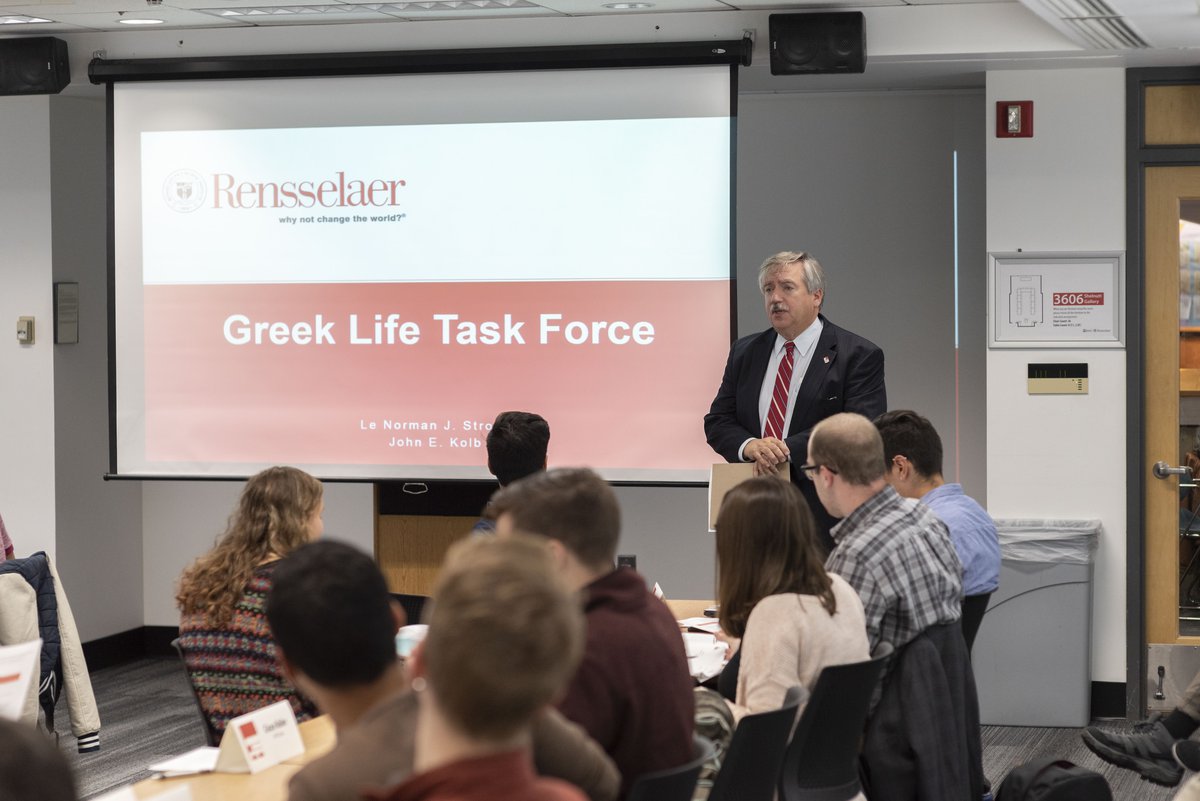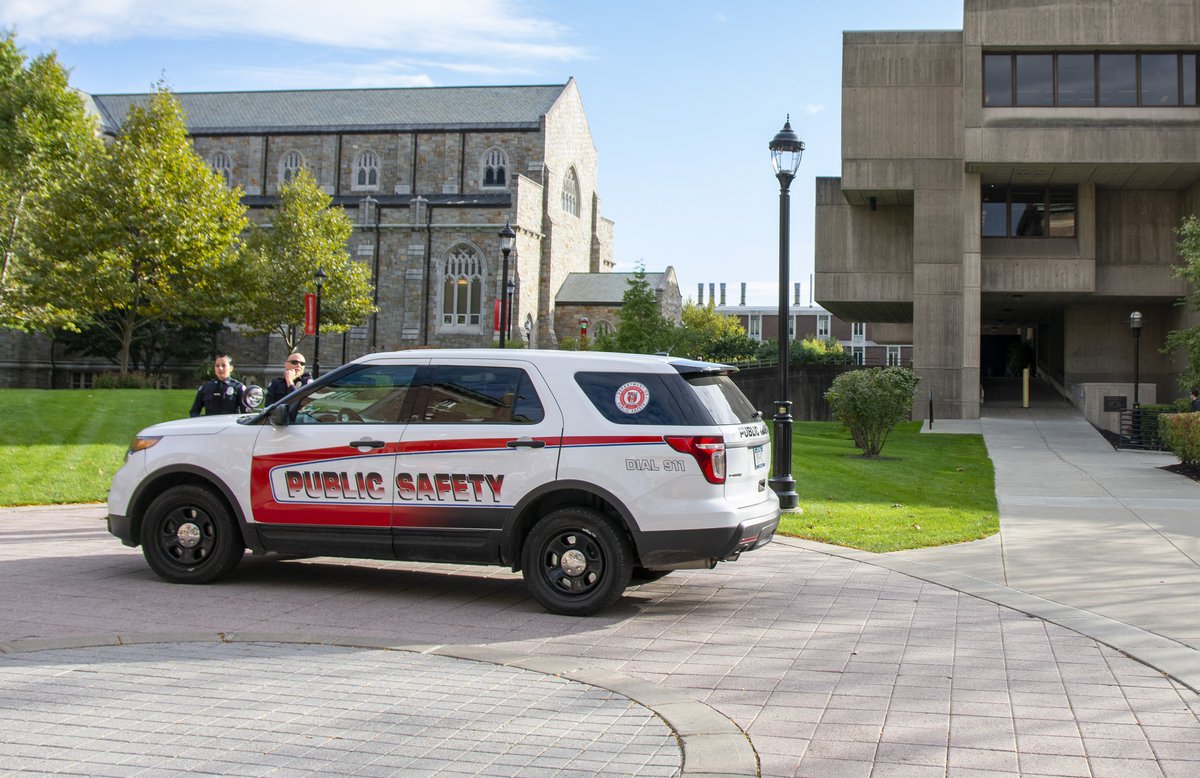Takeaways from the Draft Report of the Greek Life Task Force

The Draft Report of the Greek Life Task Force, a document outlining the state of Greek life and recommendations for improvement, was released on Friday. This comes after an open letter from presidents of Greek organizations that requested its release, and inconsistencies about when it would be finished.
The creation of the Greek Life Task Force—to be led by former Interim Vice President of Student Life Le Norman Strong—was announced in an email from President Shirley Ann Jackson on June 8, 2018. It’s purpose was “to assess the system, and work with the community to identify what is necessary to enact a long-term, sustainable, and comprehensive culture change to preserve the positive aspects of the Greek system.”
In a follow-up email from Strong on August 17, he wrote that the Greek Life Task Force would provide a “final report” to him by November 15. In another email in September 21, Vice President for Information Services and Technology and Chief Information Officer John E. Kolb ’79, who is also the chair of the task force, expressed that they are “committed to working our way through the important issues that affect our community and submitting a draft report to President Jackson by the end of October.” During the Fall Town Meeting it was announced that a draft of the report would be submitted to Jackson by Thanksgiving. On December 21, the last day of fall semester, an email was sent out to the RPI community announcing that an extension was granted by Jackson and that they “are aiming to have an updated draft ready by the start of the spring semester in order to allow for a period of public comment from the entire Rensselaer community.”
Presidents of Greek organizations on campus sent a letter to the administration on December 21 to “express our utter disappointment that the Greek Life Task Force has seemingly failed to accomplish its mission of developing a concise recommendation to improve Greek Life at Rensselaer.” This was published as an open letter on January 16, with the additional request that the “the administration follow through on its promises and provide us with the draft report in its current state.” The Draft Report of the Greek Life Task Force was released nine days later, on January 25.
Public comments on the report are open now until February 8 at 5 pm and can be made online. The website states that “all responses will be reviewed, summarized, and attached to the report that will be submitted to President Jackson in mid-February.”
Here are some key takeaways from the recommendations made in the report.
Freshman rush would always be pushed to Spring Semester
The report suggests that incoming freshman need time to become adjusted to RPI and that a spring rush would allow students to have a more informed decision before deciding if they want to pursue Greek life. Rush would still happen in the fall for transfer students and any continuing students. The report states that this new spring rush “would commence in spring 2020,” which implies that current applicants to RPI would not be able to rush during their Fall semester if these recommendations are adopted.
Greek houses would allow students over 21 to have alcohol in their private rooms
The report states that “Greek houses will also be subject to all Rensselaer regulations regarding alcohol in residence areas.” According to the Student Living and Learning website, “Only those individuals of legal age may possess alcohol and then only in the privacy of their rooms.” This means that Greek houses would be able to have alcohol within them but only in the specific rooms of students over the age of 21, but not in any communal area or within any communal fridge. The report also recommends that RPI adopt the North American Interfraternity Council resolution that bans hard alcohol—alcohol above 15 percent alcohol by volume from any chapter house or event except if served by a licensed third-party vendor. This would end the system-wide ban of alcohol in Greek housing that was extended to Spring semester by Strong in an email in December.
There is a possibility that students could live in Greek housing during The Arch
The report says that there is a potential for Greek students to live in their houses during The Arch, “as long as the house meets the standards of the Institute for health, safety, programming, and is not under sanctions.” There is no further specifications about what the details of the standards are and how a chapter would go about applying to be able to live in their house during The Arch. The report also accepts that The Arch presents “challenges for the Greek Chapters” and “require[s] a change of current housing and leadership development activities in chapters.”
All Greek organizations with houses would need to have a live-in advisor
The draft report says that a live-in advisor would “facilitate a safe environment and promote the development of each student member” and would “serve as a mentor, advisor, and role model.” The advisor would be selected with collaboration between the chapter and the Student Living and Learning Office, and could be a senior member of the Greek organization or a hired professional.
A new Greek “scorecard” would be created
A scorecard’s objective is, according to the report, “gauging the overall status and sustainability of individual organizations and the Greek Life community in general.” The report then goes on to propose 15 different factors on which Greek life could be judged: average member GPA, current sanctions, chapter size, house occupancy, “safety score of the built environment,” philanthropic events, average hours of community service by member, funds raised by chapter, “organization conduct findings,” chapter status, advisor-to-member ratio, number of advisors trained by Rensselaer, any awards given, Five Star Rating, and any chapter or campus achievements. There are no details about how these factors would be defined and if some would be weighted more than others. It also does not give a reason to a move away from solely the Five Star Rating.
The report recommends revising and combining all Greek-related agreements
There are currently two agreements between RPI and social fraternities and sororities: the “Relationship Agreement” and the “Greek Life Commons Agreement.” The report recommends that “these multiple agreements should be re-drafted and merged into a single, authoritative agreement, comprehensive and consonant with all agreements governing Greek Life and Rensselaer policy.” It also recommends a creation of a committee made up of “alumni/ae, especially those with knowledge of Greek Life, undergraduates, and administrators with strong institutional knowledge” to oversee the creation of the comprehensive agreement.
New trainings would be implemented for all students
The report recommends that there should be multiple new trainings implemented or expanded for all students, and for students involved in Greek life. One of those is that “all students will receive annual Title IX Sexual Misconduct Policy and sexual assault prevention education and programming.” All students will also have a training on Greek life before the recruitment period so that students are “educated and informed about the purposes of Greek Life, its concomitant values, expectations, responsibilities and accountabilities of membership.” Finally all chapter officers would be required to participate annually in unconscious bias training.

 Town Meeting
Town Meeting
 Campus Security
Campus Security